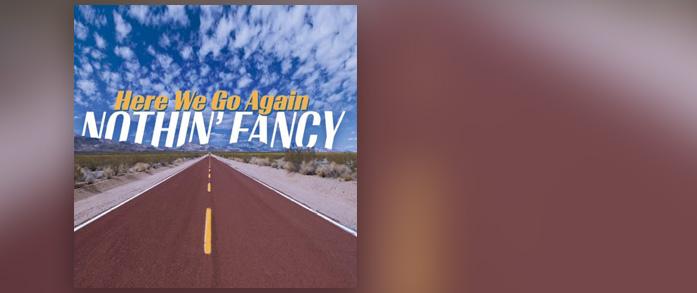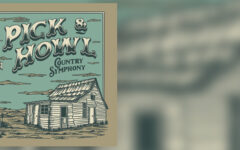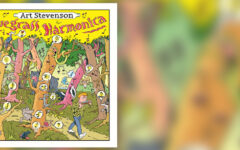
Given an impressive history that can be traced back nearly 30 years, Nothin’ Fancy’s considerable accomplishments certainly belie an otherwise unassuming handle. Having tallied eleven full length albums, performances at such prestigious venues as the Ryman Auditorium, Lincoln Center the Birchmere in Alexandria, Virginia, Silver Dollar City in Branson, Missouri, and Dollywood in the heart of the Smoky Mountains, they’ve garnered a collective reputation as eager entertainers and tireless troubadours who have shared their music with audiences both here and abroad. Their lengthy list of honors include six Society for the Preservation of Bluegrass Music of America (SPBGMA) Entertainers of the Year awards, as well as induction into the Virginia Country Music Hall of Fame.
Their’s is an auspicious series of accomplishments to be sure, and yet their music teems with an honesty and humility borne from a decidedly down home demeanor. In that regard, their appeal is spawned from an Everyman perspective, courtesy of abject observations that come across as both relatable and reflective. It’s little surprise that the band — Mike Andes (mandolin), Jacobs Lauzon (guitar), Jacob Flick (banjo and pedal steel), James Cox (bass) and Chris Sexton (fiddle) — write the bulk of their own material, and that even their sole cover, a take on John Prine’s Paradise finds a fit within their humble approach.
Like that particular song, much of their material is inspired by recollection and reflection, themes that are particularly prominent in the sweetly sentimental Time Gone By, the casual and carefree Here We Go Again and Little Island Love, and the cheerful The Things I’m Sorry For. Just An Old Farmer conveys gratitude for simple blessings, while the honky tonk twang of That’s What Bar’s Are For celebrates the kind of setting where it’s okay to make a fool of one’s self, given the fact that the neighborhood bar is, if nothing else, a safe space for good ‘ol boys to gather.
Even the album’s sole instrumental, Memories of Monroe, manages to make good on that feel-good appeal.
That’s not to say Nothin’ Fancy basks entirely in overt optimism. Dog Eat Dog World is more or less a paean to pessimism spawned from lessons learned. Gone At Last celebrates the fact that the singer’s lover has left, having hoped she would do so all along. So too, Paradise laments the intrusion of industry and development on a place that once was considered a sacred setting.
Still, Here We Go Again is mostly a welcome respite, a feel good record built on sunny sentiment. True to the title, it suggests there’s reason for a return.







